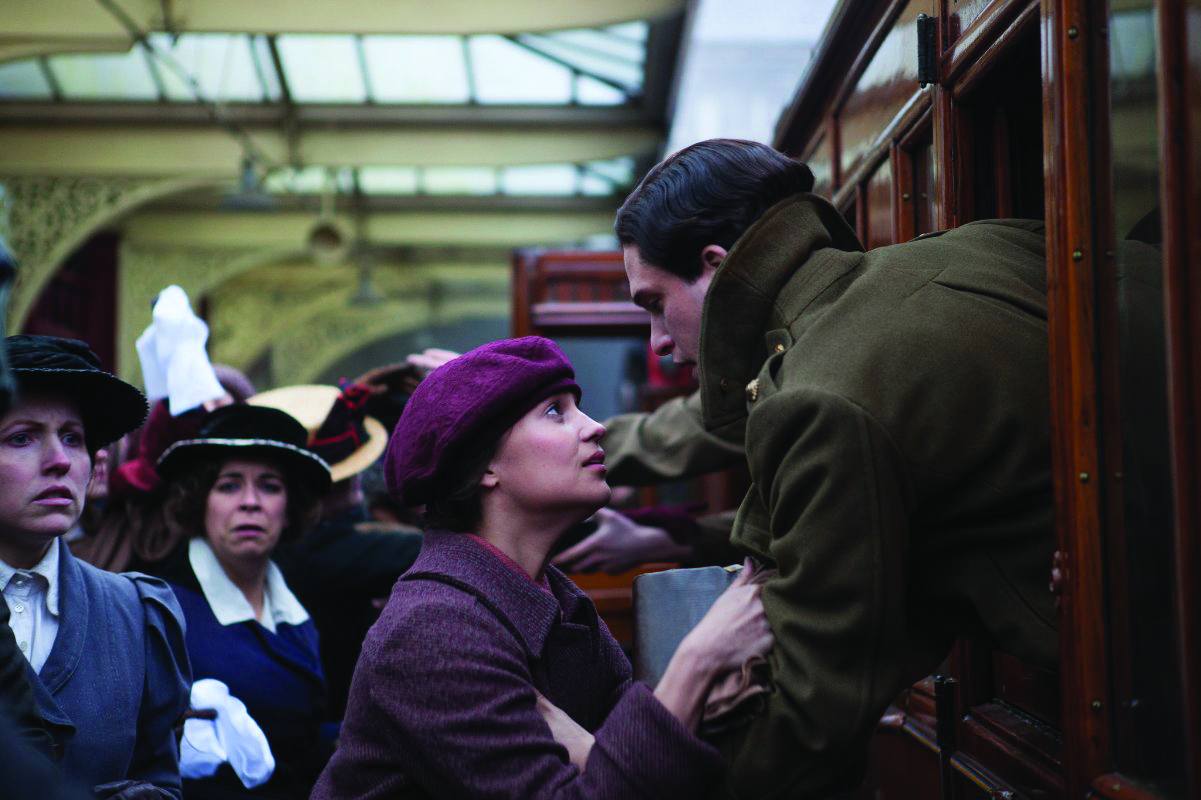by Richard von Busack
The new adaptation of Vera Brittain’s memoir Testament of Youth proves one glib rule of filmmaking and disproves another. First, it really is best to start a story as late in the plot as you can. Second, a war movie doesn’t necessarily have to endorse war.
Director James Kent is allowed far more realism than the previous BBC miniseries adaptation of Brittain’s WWI memoir of being a nurse to the wounded. We can see that the conditions in a Western Front field hospital haven’t changed much since the Crimean War; for that matter, a crane shot of casualties laid out on stretchers in a muddy field resembles the similar carnage of the Atlanta depot scene in Gone with the Wind.
Alicia Vikander (Ex Machina) plays Vera, a young lady who yearns to go to Oxford, despite the fact that her family believes that education is wasted on women. Vikander plays the role with anachronistic fury—it’s as if she’s surprised by the discrimination against women and hadn’t grown up with it all around her.
Vera sees her loved ones being consumed one by one by the war, and as always, the decorum of her class makes the story sadder. One never expects upper-class Brits to emit howls of grief, as they do here. The tragedy is keener than the first half-hour of nostalgic feminist umbrage staged against the spring flowers of the Yorkshire countryside, and later in Oxford.
The terrific opening falsely promises a far more sharply impressionistic film to come. It begins with Vera coming out of a fog on the morning of Armistice Day. Her numb horror at the crowd’s screams of joy drives her into an empty church. There, she sees a painting of Noah’s flood, and she imagines herself tumbling in the tide.
The reminder of the price of war also serves as a showcase for young actors. As Edward Brittain, Taron Egerton evokes the loss of an entire generation simply by turning up in an ill-fitting woolen army uniform.
It’s too soon to tell if Kit Harington, as Vera’s lover Roland, will go places beyond Game of Thrones. But there is warmth enough between Vikander and Harington to draw in a romance-seeking audience—and those who never heard these stories of wastage before will be pierced quite deeply.






